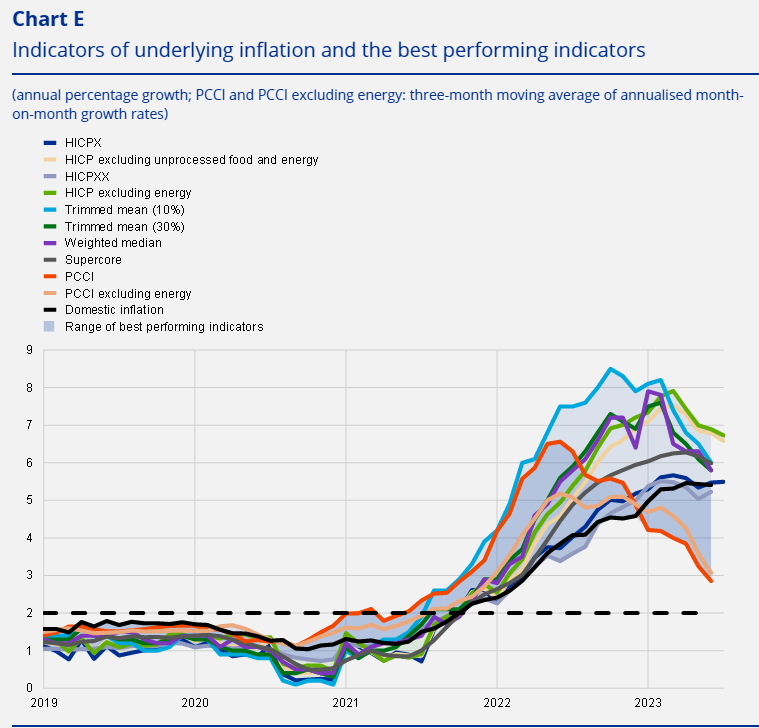The underlying inflation in the euro area likely peaked in the first half of 2023 due to falling prices, especially in energy, according to a release published by the European Central Bank (ECB).
Underlying inflation is a measurement which reflects medium-term inflation developments linked to the business cycle. It’s different from core inflation which refers to the harmonised index of consumer prices (HICP) which excluding energy and food prices.
“Median and mean underlying inflation measures suggest that underlying inflation likely peaked in the first half of 2023,” wrote the ECB.

The ECB makes use of 10 different indexes to generate the rate of underlying inflation.
The most optimistic indicator was the persistent and common component of inflation (PCCI) index which is a measurement based on disaggregated information from the HICP. The PCCI registered an inflation rate of 2.9 per cent.
Meanwhile, the most pessimistic index was the HICP excluding energy index, which registered a 6.9 per cent inflation rate in June 2023.
Nevertheless, almost all indicators showed signs of easing.
However, the ECB cautioned, “the range of the underlying inflation measures remains much wider than before 2022, which suggests there is still a high degree of uncertainty as to the level of underlying inflation.”
“At the same time, the easing of underlying inflation comes with an ongoing shift in inflationary forces from external to domestic sources.”
The ECB has been on the warpath with inflation, having raised interest rates nine consecutive times to their highest rate in over 20 years.
The monetary union’s average inflation rate declined to 5.3 per cent in July 2023, well below it’s 2022 peak of 10.6 per cent, however it was still significantly above its target rate of two per cent.
Rising interest rates have helped cool inflation however it has also contributed to a slower economy since it made borrowing money more expensive.
According to reports, it is possible that the ECB may opt to pause hiking interest rates further at the next Governing Council meeting in September.
BNF Bank and Mastercard partner to bring added value to Maltese customers
Collaboration enhances everyday banking through exclusive experiences, rewards, and innovative payment solutions
ĠEMMA launches new podcast series to make financial literacy accessible for all
New episodes will be released every two weeks and will be available across multiple platforms
Malta introduces new 15% tax regime for highly skilled professionals
Qualifying individuals are taxed at a flat 15% rate for an initial five-year period






